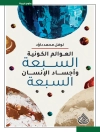In ‘The Symbolism of Freemasonry, ‘ Albert Gallatin Mackey intricately explores the profound significance of Masonic symbols and their philosophical implications. Employing a meticulous blend of historical analysis and esoteric interpretation, Mackey delves into the rich tapestry of Masonic tradition, highlighting the interplay between its rituals, moral lessons, and the broader metaphysical concepts that underpin Freemasonry. Through his careful examination of symbols such as the square and compass, the reflexive nature of light and darkness, and the allegories of ancient crafts, Mackey presents a text that is as enlightening as it is enlightening, serving both the seasoned Freemason and the curious scholar alike. His articulate prose and systematic approach provide a clear lens through which the intricate layers of Masonic thought can be perceived within the context of 19th-century philosophical movements. Albert Gallatin Mackey was an influential figure in American Freemasonry, known for his extensive writings that sought to illuminate the principles and practices of the craft. Born in 1807, Mackey’s deep involvement in Masonic affairs as both a scholar and practitioner informed his perspectives on symbolism. His commitment to elevating Masonic education and his scholarly pursuits in various fields—ranging from medicine to occult studies—shaped his views on the interconnections among symbolism, morality, and community values, culminating in this seminal work. This book is a must-read for anyone interested in unlocking the secrets of Freemasonry’s rich symbolic world. Whether you are a practicing Mason or a general reader fascinated by esoteric traditions, Mackey’s text serves as a crucial resource that not only enhances our understanding of Masonic philosophy but also invites reflection on the deeper currents of human experience. Embark on a journey through the intriguing labyrinth of symbols and discover what lies beneath the surface of this ancient fraternity.
लेखक के बारे में
Albert Gallatin Mackey (1807 – 1881) was a prolific American author, physician, and Masonic historian known extensively for his writings on Freemasonry. Mackey’s scholarly approach to the ritualistic and symbolic nature of Freemasonry garnered him high regard within and beyond Masonic circles. His pivotal work, ‘The Symbolism of Freemasonry: Illustrating and Explaining Its Science and Philosophy, Its Legends, Myths, and Symbols’, dives deeply into the esoteric aspects of Masonic lore, unearthing the philosophical underpinnings of Masonic symbols and rituals. Mackey was not only a writer but also an educator and intellectual, embracing the didactive potential of his work to elevate the understanding of his brethren in the craft. Through his detailed examinations of Masonic history and iconography, Mackay sought to provide an interpretive lens for Masons and scholars alike to decode the complex symbolic language of the fraternity. His contributions are fundamentally embedded within the corpus of Masonic literature, as his meticulous and interpretive works continue to be referenced and appreciated for their depth and clarity. Mackey’s legacy as a cornerstone of Masonic scholarship is evident in the continued relevance of his writings among both Masons and academics interested in ritualistic symbolism and fraternal history.












